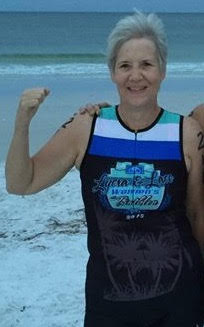10 Ways to Transform Leftovers
Do you hate leftovers? Does your partner?
I didn’t grow up eating leftovers.
My father had grown up very very poor, rarely having enough food to eat. And when they had food, it was often a 10lb bag of beans they would eat meal after meal for a week straight.
It’s not surprising that my father became apprehensive of leftovers, or that as a provider, he felt a sense of pride that his family never had to eat leftovers…
As I grew older I realized other families did not live or eat like mine.
Friends with single, working parents often ate the same casserole all week long.
Other kids ate the same exact lunch every day or took “leftovers.”
In fact when a kid tried to trade me lunches, his leftover lasagna for my sandwich, I said something about how I didn’t like leftovers (even though I really loved lasagna and loved it a whole lot more than a bologna sandwich).
Not liking leftovers is a learned behavior.
How could I conclusively hate something I had never really had?
More importantly, would I turn away “leftover” birthday cake? Absolutely not.
My husband didn’t grow up eating leftovers either, but for entirely different reasons. His parents worked opposite shifts, so they never had mealtimes together to have leftovers.
Point is, we both came into our marriage hating leftovers.
Or not wanting to eat leftovers if we had them.
And because we were both too busy and too tired to cook a “fresh” meal after a long day, we went out to eat or ordered take-out so someone else would do the “fresh” cooking for us.
(Nevermind that most restaurant food is made well ahead and “leftover.”)
We had colored our minds against “leftovers” thinking they were gross, soggy seconds.
But when we decided to get serious about our health, go vegan, and lose weight…
I KNEW I had to meal plan *and* cook. There was no other way.
And with my schedule, there was NO WAY I could cook nightly.
So I HAD to cook on the weekends, and because I was slow and inexperienced, I started cooking big batches to save time and effort.
We HATED it, especially my husband, but we forced it down.
Then something happened: We felt the UPSIDES.
Losing weight and feeling better—yes!! But we LOVED the money savings, routine, and convenience most of all!
Coming home after a long day knowing dinner is ALREADY in the fridge?
Such an awesome feeling.
All I have to do is reheat and eat?! Hell to the YEAH.
We also started noticing a lot of foods only got more flavorful and better tasting as they sat and “marinated” for a few days.
BUT if you’re still mentally blocked about leftovers…
Try these “repackaging” ideas:
- turn into a sandwich or wrap
- put it with pasta
- serve it inside lettuce cups
- or over leaves (kale, spinach, etc.) for a salad
- put it on top of pizza
- stuff into a bell pepper
- mix into tofu scramble
- puree into a soup (works GREAT for veggies!)
- serve as a pot pie filling
- serve warm or cold (whatever you didn’t do last time)
P.S. In a happy turn of events, even my plant-based parents have come to love “leftovers” too. Not only for the ease, but they feel most Meal Mentor recipes taste BETTER a few days later. My DAD often cooks extra so they have enough for a second meal, even though both he and my mom are retired and have the time to cook daily.
P.P.S. Join the Meal Mentor newsletter (it's FREE!) Click here to signup!



